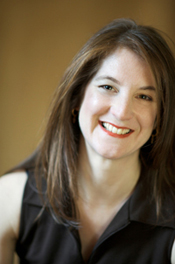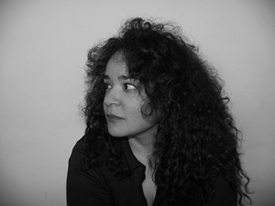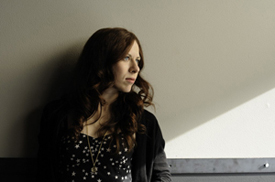The American Pianists Association has commissioned works for solo piano from five American women composers: Lisa Bielawa, Margaret Brouwer, Gabriela Lena Frank, Missy Mazzoli, and Sarah Kirkland Snider. The five compositions will receive their world premiere performances in Indianapolis on April 15, 2013, by the five finalists for the APA’s 2013 ProLiance Energy Classical Fellowship Awards. The finalists—Sean Chen, Sara Daneshpour, Claire Huangci, Andrew Staupe, and Eric Zuber—will perform the APA-commissioned works during a new music recital that is part of the APA’s Discovery Week, the culmination of a year-long competition for a prize valued at more than $100,000. On April 20, one finalist will be named the APA’s 2013 Christel DeHaan Classical Fellow, a musician with the potential to make significant contributions to American cultural life. New York City’s historic Trinity Church will present the APA’s newly selected winner and the four laureates in its Concerts at One series on April 25, when the five pianists will give the New York premieres of the five new APA-commissioned solo piano works.
Joel Harrison, president/CEO and artistic director of the APA, explains the role of new music in the Association’s competition process: “The competition process incorporates the various ways in which pianists participate in the musical culture—playing chamber music, solo recitals, concertos, accompanying singers, as well as working with composers and performing new works. It’s one thing to play a Beethoven Sonata where you can listen to decades of recordings. But when you’re assigned the premiere of a new work, you are the resource, the yardstick. It’s a special challenge for the pianists to come up with a compelling, imaginative performance, so it enables us to see another side of the pianist. For this particular occasion, we’re fortunate to have a very generous grant from The Sorel Charitable Organization. In our discussions with the leadership at Sorel—whose mission is to support female musicians—we decided to have a round of commissions for women composers. They’re all Americans, and to some extent, I leaned in the direction of the younger generation. Other than the charge to write pieces for solo piano of 5-7 minutes in length, I gave the composers no restrictions and no limitations on compositional style.”
Lisa Bielawa on Vireo Canons and Chorale:
“There is something incredibly beautiful about watching young musicians discover the depth and expanse of their own talent. As I began work on this short offering for an as-yet-unknown young pianist, I remembered how that fierce energy felt to me in my early 20s when I was just discovering that I was actually a composer.
“Like Prokofiev in his third piano sonata, I went back to old notebooks from that time and found my drafts for a massively ambitious full-length opera entitled Vireo. I took a few fragments of material from these notebooks and created multiple canons and an expansive chorale from it—the piece is both a dialogue with my earlier self and a celebratory embrace of a new generation of musicians.”
Margaret Brouwer on Prelude and Toccata (working title):
“It was a challenge to write a solo piano work for a competition between fine pianists. Should it be virtuosic? Should it be more about expressivity? Should it be difficult? Should it not be difficult?
“In the end, I put aside these concerns and wrote the piece I wanted to write knowing it would get a wonderful performance by a fine pianist. This is a work with a forward thrusting motor rhythm, yet the underlying impetus of the music threads through various emotions.”
Gabriela Lena Frank on Karnavalito No. 1:
“Having attended the finals of an American Pianists Association [competition] in a previous year, I am well acquainted with the extraordinarily high level of skill and imagination on the part of the contestants. It’s an honor, therefore, to have been asked to compose a work for the competition, and I can’t wait to see what the young pianists will do with the Karnavalito No. 1!
“The piece is inspired by the distinctly Andean concept of mestizaje as championed by Peruvian folklorist José María Arguedas (1911-1969) whereby cultures can co-exist without one subjugating another. Allusions to the rhythms and harmonies of the mountain music of my mother’s homeland of Perú abound in this boisterous work, albeit freely transformed in the blender of my personal imagination. About five minutes in length, the work is dense in its virtuosity with stylistic nods to the Hungarian composer Béla Bartók, a musical hero of mine.
Missy Mazzoli on Heartbreaker:
“As a composer who started her musical life as a pianist, it was unexpectedly difficult to write a short piece for the American Pianists Association’s competition. I wanted to write something virtuosic but something that stood out from traditionally showy competitive pieces.
“My new work, Heartbreaker, is virtuosic in subtle, unusual ways. It starts out deceptively simple, and quickly spirals into something that is just within the limits of the pianist’s control. It requires a virtuosity that is not about playing faster than everyone else, or even about playing more accurately than everyone else, but more about striking a balance between rhythmic precision and the freewheeling abandon the piece requires.”
Sarah Kirkland Snider on The Currents:
“Piano was my first instrument and musical passion, so a solo piano commission for a competition initially intimidated me greatly. I know the literature well—how deeply and imaginatively the instrument has been explored, and how difficult it is to invent new ways to challenge the pianist. There is an idea that a piece written for a competition should do this, that it should invent new technical demands and showcase extreme pyrotechnical dazzle. When I was younger, I wrote some piano music that consciously strove for virtuosity, but that is no longer where I am as an artist. These days I am more interested in getting at what is most peculiarly personal and in need of expression.
“So when I was asked to write this piece, I decided that my contribution would be something that challenged the pianist to be at their most expressive, poetic, and lyrical, something that would reward a sharp attention to detail and sensitivity to pacing and narrative. Of course, the fact that it was for a competition never fully left my mind, so the piece does require a formidable technique, but my hope is that The Currents allows the performer to exercise and display other kinds of skills as well—skills that, to my mind, are just as essential to becoming an unforgettable pianist.”
About the American Pianists Association
Unlike any other major piano competition, the American Pianists Association focuses equally on classical and jazz pianists. The APA’s Fellowship provides a $50,000 cash award and two years of career assistance and performances, valued together at more than $100,000. Performance opportunities during the fellowship period involve solo recitals as well as appearances with the Indianapolis Chamber Orchestra and symphony orchestras of Indianapolis, Milwaukee, Phoenix, Santa Fe and Tucson. Steinway is the official piano of the 2013 Fellowship, and the chosen Fellow will issue a solo recording on the Steinway label, for distribution by ArkivMusic. More information is available here.
(from the press release)







